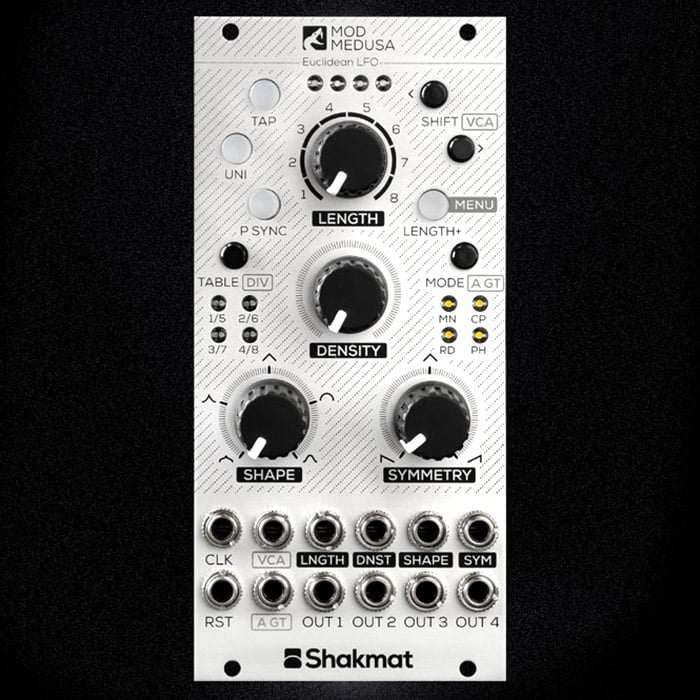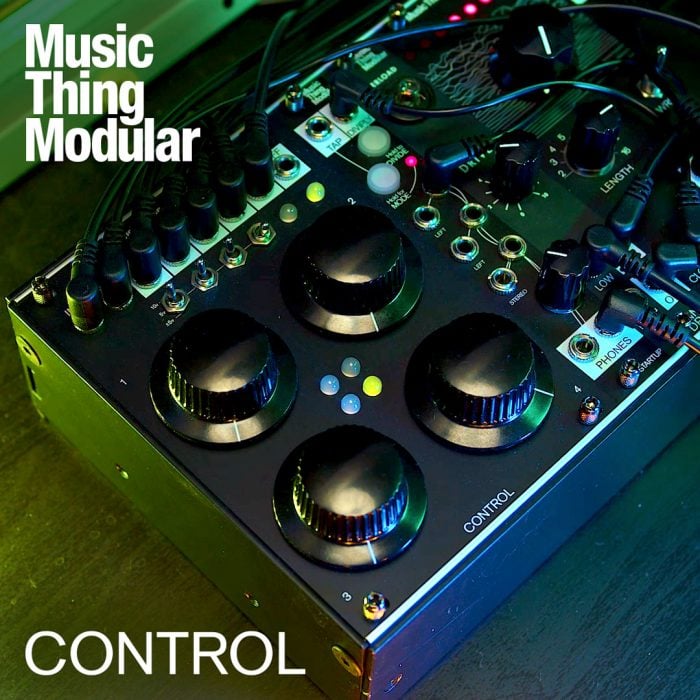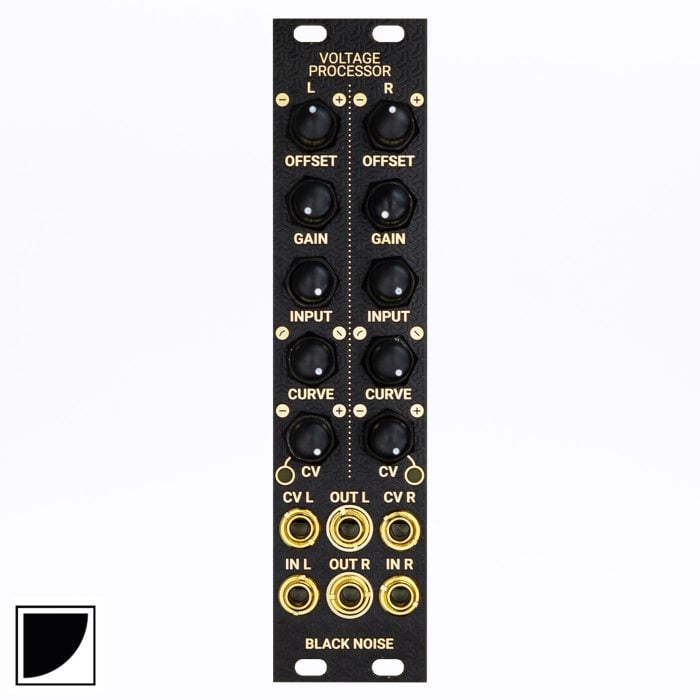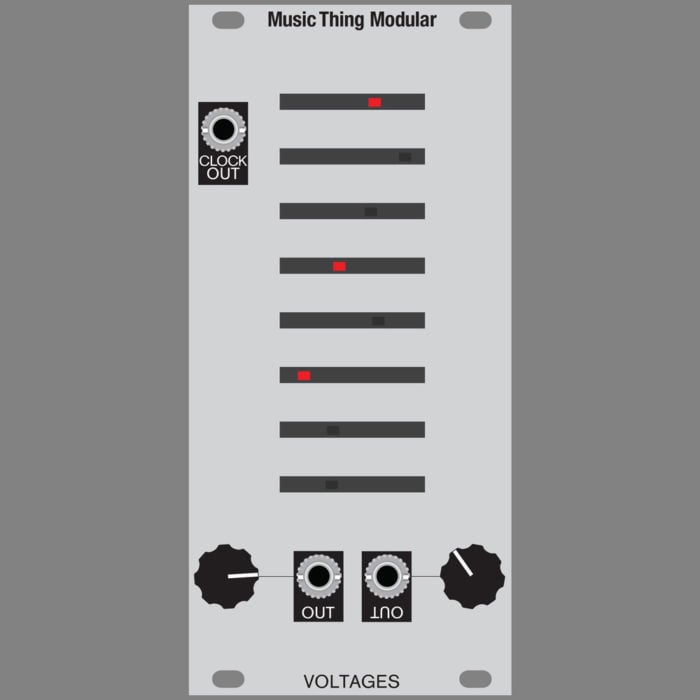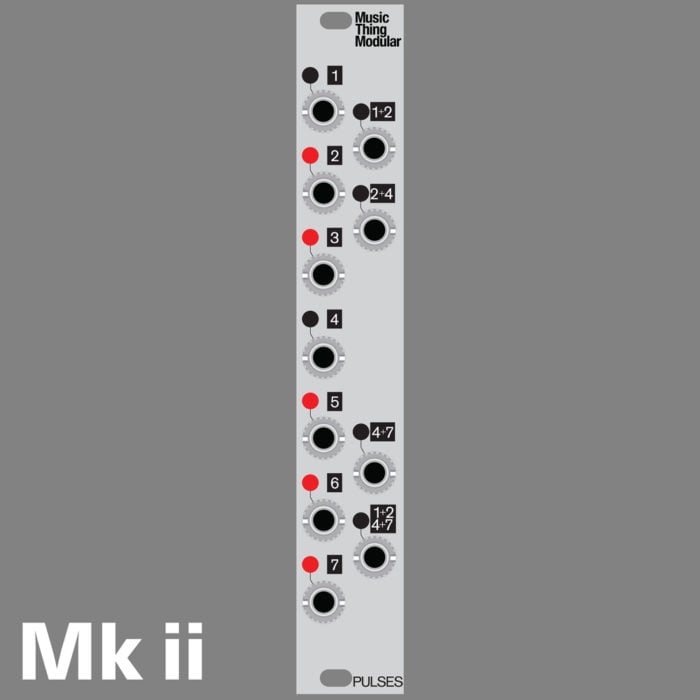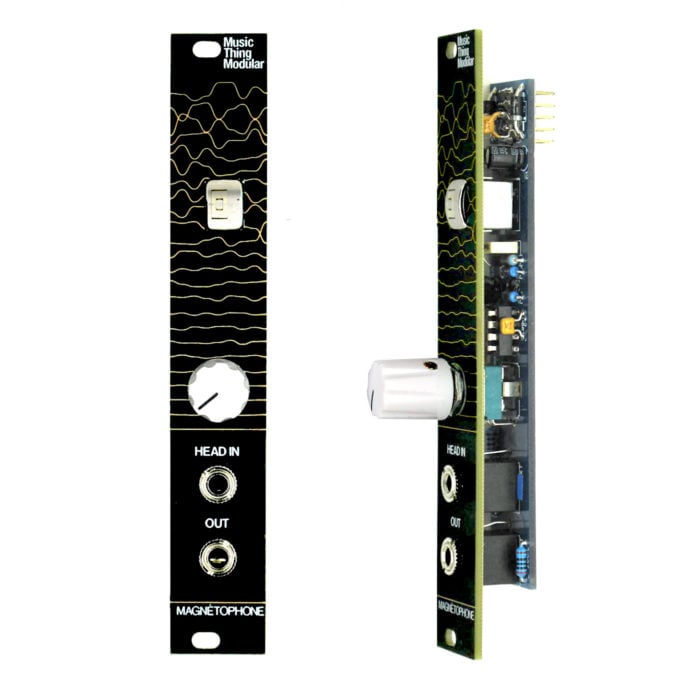Description
In a simplistic way, The Mod Medusa could be described as a Euclidean LFO : an “algorithmic” modulation source which produces variable period LFO signals synced to rhythmic patterns. Those patterns are generated by algorithms such as the classic Euclidean one or from different algorithms adapted from the Shakmat White and Knight’s Gallop. The Mod Medusa has 4 outputs which generate 4 correlated LFOs, giving different “polyrhythms” according to the chosen mode.
Generated waveforms can easily be twisted using the symmetry and shape parameters which continuously morph the signal into different waveshapes. The range of panel controls and assignable Gate and VCA Inputs turn the Mod Medusa into a strong performance tool. A very unique but cohesive approach to modulation which leads to instantaneous and original results!
Mod Medusa – Build Document | User Manual
Features
- Unique concept of sequenced LFO
- Four outputs which can be correlated or independent
- Four correlation modes : Main, Compute, Random or Phase
- Eight tables generated by algorithms producing different rhythmic patterns
- Length (from 1 to 16 steps), density and shift controls over the sequence
- Shape and symmetry controls over the generated waveforms
- Unipolar or Bipolar outputs
- Peak Sync function – options to synchronise the LFO to the incoming clock
- Assignable gate input which can work as ratchet, track and hold or one shot mode.
- Assignable VCA input which can be assigned to any output.
- On board clock divider
- Bipolar CV inputs (except for the VCA input)
- Current state storing
- Skiff Friendly
- Rubber injected knobs
- Width: 12 hp

